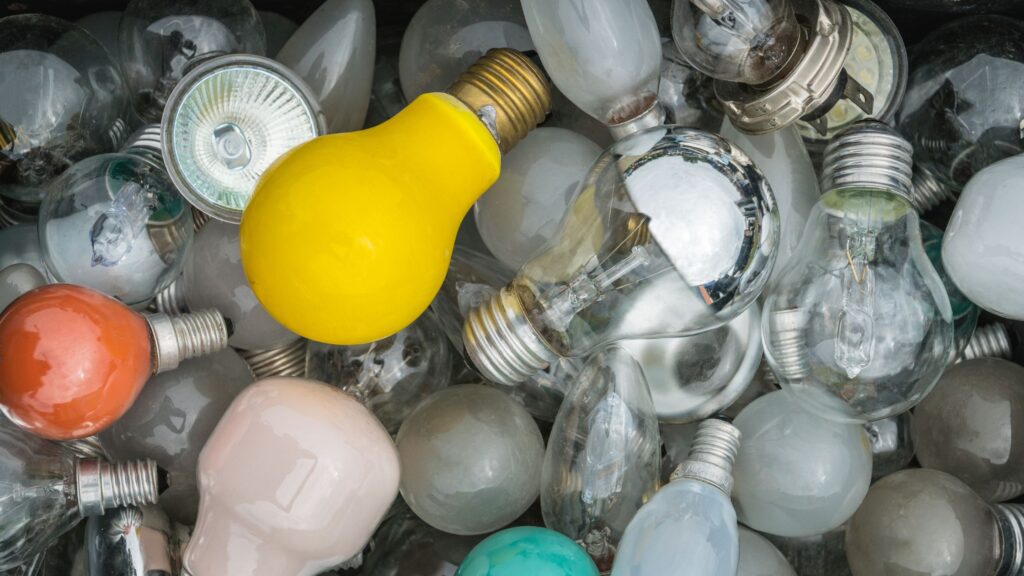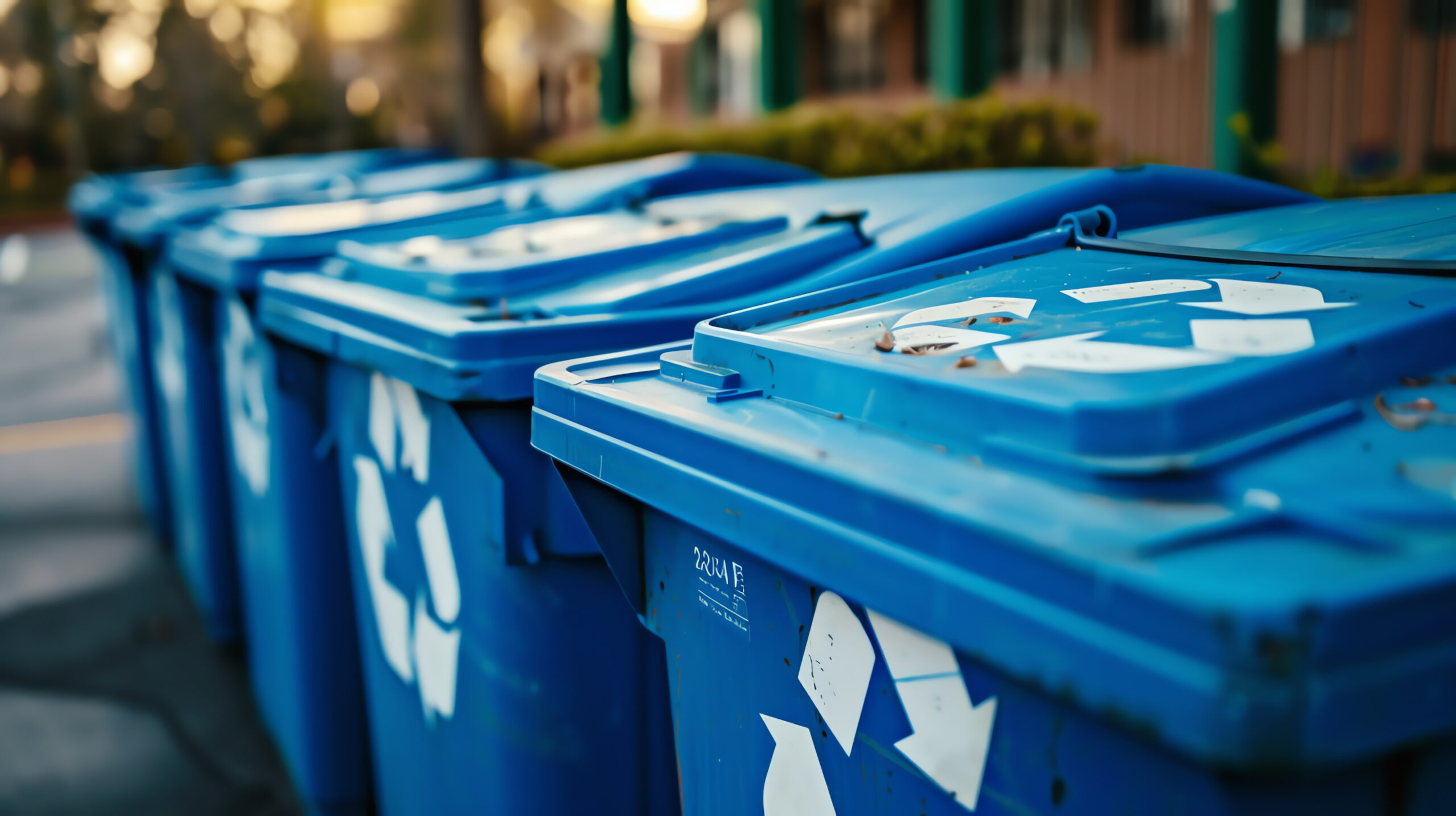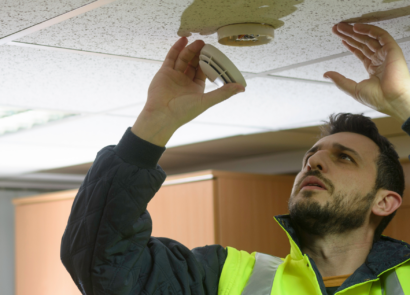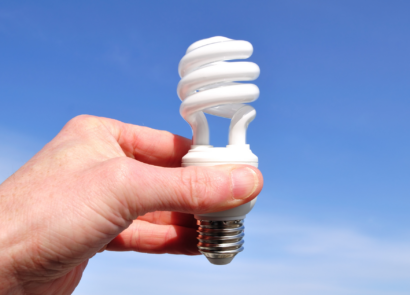At Product Care Recycling, we sometimes receive curious glances when we talk about recycling household items like batteries, light bulbs, and smoke or CO alarms. But they don’t go in your bins at home. So if not the blue bin, then where?
It’s a fair question, considering we often equate our curbside blue bin with the broader concept of recycling. But there’s a whole world of items that need a different kind of recycling attention. Here are some ideas to get you started on recycling beyond the iconic blue bin.
Start with the basics
Recycling 101 might involve separating napkins and cartons from soda cans, but there’s a lot more to it. Make sure you’re up to speed on what your municipality collects and what it doesn’t.
Involve your household in this eco-friendly mission, too. Set aside a space in your home for sorting curbside recyclables, compost, and items that need to be dropped off at a designated recycling location. Get everyone on board with the responsibility of taking them to the right place. Together, you’ll instill a culture of sustainability at home.
Recognize other recyclables
Got a burnt-out light bulb? A collection of dead batteries? A paint can from a colour experiment gone wrong? Don’t just toss them – recycle them! Many items not accepted in your blue bin have designated recycling pathways. Here’s how you can ensure they’re handled properly:
Light bulbs: When light bulbs are thrown into the garbage, they go to a landfill. Once they’re there, the contents, such as mercury (found in CFLs) inside, can seep into landfill groundwater and create contaminated leachate, which can affect our drinking supply. In many provinces in Canada, you can drop off burnt–out light bulbs, free of charge, at one of Product Care’s light recycling locations.

Mercury from light bulbs can leach into the groundwater, potentially contaminating our drinking supply.
Batteries: Most batteries contain toxic chemicals like cadmium, lead, lithium, or sulfuric acid. If disposed of improperly, these chemicals can leak into the ground, contaminate groundwater, and potentially enter the food chain. Find designated drop-off locations at Recycle Your Batteries.
Paint: Leftover paint can be recycled and repurposed in an environmentally friendly manner to keep it out of landfills and waterways. Check out the guidelines for the paint recycling program here.
Consider obtaining a small cardboard box to neatly store your depot-specific items, such as burnt-out light bulbs, batteries, and wires. Once you have gathered enough, you can easily transport them to your local designated recycling locations for proper sorting and recycling.
Smoke/CO alarms: Ionization smoke detectors contain a trace of radioactive substances, which are protected within a metallic barrier and remain harmless when intact. However, it requires careful disposal. If you live in BC, make sure to drop off your end-of-life smoke/CO alarms at a designated recycling location near you to ensure responsible disposal.
Visit your local recycling location
Across Canada, many recycling locations are ready to accept a wide array of recyclables. Next time you’re returning bottles and cans, take a moment to look around. What else do they take? You might find recycling bins for everything from light fixtures, if you’re in BC, to electronics, accepted in most places in Canada, and many other products.
Buy smart and dispose thoughtfully
The key to becoming a savvy recycler is to think about a product’s recyclability before you even buy it. Questions like “Can I use all of this product?” “How will I dispose of it when it’s broken or no longer needed?” “How can I keep this out of the landfill?” are all important. They’ll help you make informed decisions and avoid unnecessary clutter down the road.
With the vast array of recyclable materials available today, we hope these tips have helped you to think about recycling beyond the blue bin.
Follow Product Care’s Facebook pages for the most recent updates.



